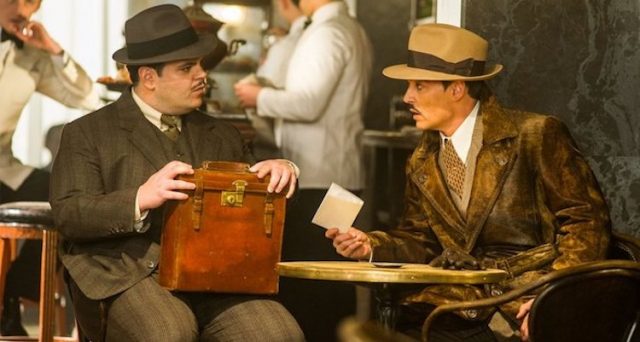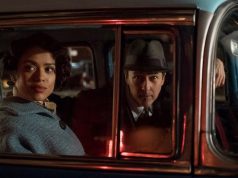
In 1934, when Agatha Christie published “Murder on the Orient Express,” trains were still a popular means of transportation, and Asia was still called “the Orient.” Much has changed in the last 83 years — for example, in her entire life Agatha Christie never had more than one flavor of Oreos — yet her story is remarkably undated. The killing, the motives, and the types of people involved are timeless.
That’s a roundabout way of saying that if Kenneth Branagh’s new movie version feels stodgy and protracted, don’t blame Agatha. Branagh and screenwriter Michael Green (“Blade Runner 2049”) keep the 1934 setting and most of the story details, but add things like gunplay and a perilous chase on a wooden train bridge to give it some modern razzle-dazzle that feels beneath them and us. More subtly, they’ve emphasized the brilliance and righteousness of the main character, world-famous Belgian detective Hercule Poirot (played by Branagh), constantly building him up as a virtuous defender of humanity and laying it on really thick as they do. This is supposed to be a lighthearted murder mystery, fellas. Take it down a notch with the moralizing and the speechifying.
After a Jerusalem-set prologue in which his deduction skills prevent a three-way holy war (SEE HOW IMPORTANT HE IS?), the elaborately mustached Poirot boards the title train with a dozen or so other passengers. It’s the first-class car, so everyone is wealthy and ostensibly respectable, though we don’t get to know most of them until they become suspects (and even then there are a few who clearly aren’t important — sorry Penelope Cruz!). There’s an oily American businessman among them, Edward Ratchett (Johnny Depp), who is found murdered on the second morning of the three-day journey, just before the train is partially derailed by an avalanche (avalanche!) and must sit there until rescue comes. That gives Poirot plenty of time to solve the mystery, which he does at the behest of his friend Bouc (Tom Bateman), a railway executive who’s onboard.
(Aside: This film would have had $100 million in pre-sales if the marketing had told people that Johnny Depp is the one who gets murdered.)
Our almost-all-star cast of suspects includes MacQueen (Josh Gad), Ratchett’s nervous secretary, and Masterman (Derek Jacobi), his elderly valet, as well as people who seemingly had no connection to him: Mrs. Hubbard (Michelle Pfeiffer), a husband-seeking flibbertigibbet (“a head full of steam and a mouth full of words,” Poirot says of her); Gerhard Hardman (Willem Dafoe), a racist German scientist; haughty Russian princess Natalia Dragomiroff (Judi Dench) and her maid, Hildegarde Schmidt (Olivia Colman); the Count and Countess Andrenyi (Sergei Polunin and Lucy Boynton); Miss Mary Debenham (Daisy Ridley), who’s been working as a children’s governess and is secretly dating Dr. Arbuthnot (Leslie Odom Jr.), who as the only doctor on the train probably isn’t a suspect but you never know.
Some of these people prove interesting, but none of them get enough attention to really capture our imagination. How great to see Judi Dench as a noblewoman and Michelle Pfeiffer as a talkative manhunter! How disappointing to see them relegated to stock characters who merely serve a function in the narrative. Only Poirot gets a chance to shine — which, to Branagh’s credit, he does. He plays the detective as obsessive, cursed with an inability to overlook flaws, unyielding in his pursuit of justice, but quick with a bon mot.
Branagh is less successful as director of the proceedings, which move at a wobbly pace until the last 20 minutes or so, when they become slapdash. Some clues are set up but never redeemed (like the detail of Ratchett not speaking any foreign languages); others are listed in Poirot’s summation without having been established earlier (like Frau Schmidt’s knack for cooking). It’s an un-meticulous film about a highly meticulous character.
Of course, there’s a good chance you already know how the movie ends, either from reading the book or from seeing Sidney Lumet’s 1974 movie version with Albert Finney, Lauren Bacall, Sean Connery, Ingrid Bergman, et al. Is it still a fun mystery when you know the solution? For me, the answer is no, not particularly. With the element of surprise gone, you look to the performances and direction for diversion. These, as mentioned, are adequate but unremarkable. If you’re a “Murder on the Orient Express” novice, it’s probably worth seeing — but, again, there’s that smoother, more polished 1974 version just sitting there, with Anthony Perkins instead of Josh Gad.
C+ (1 hr., 54 min.; )





